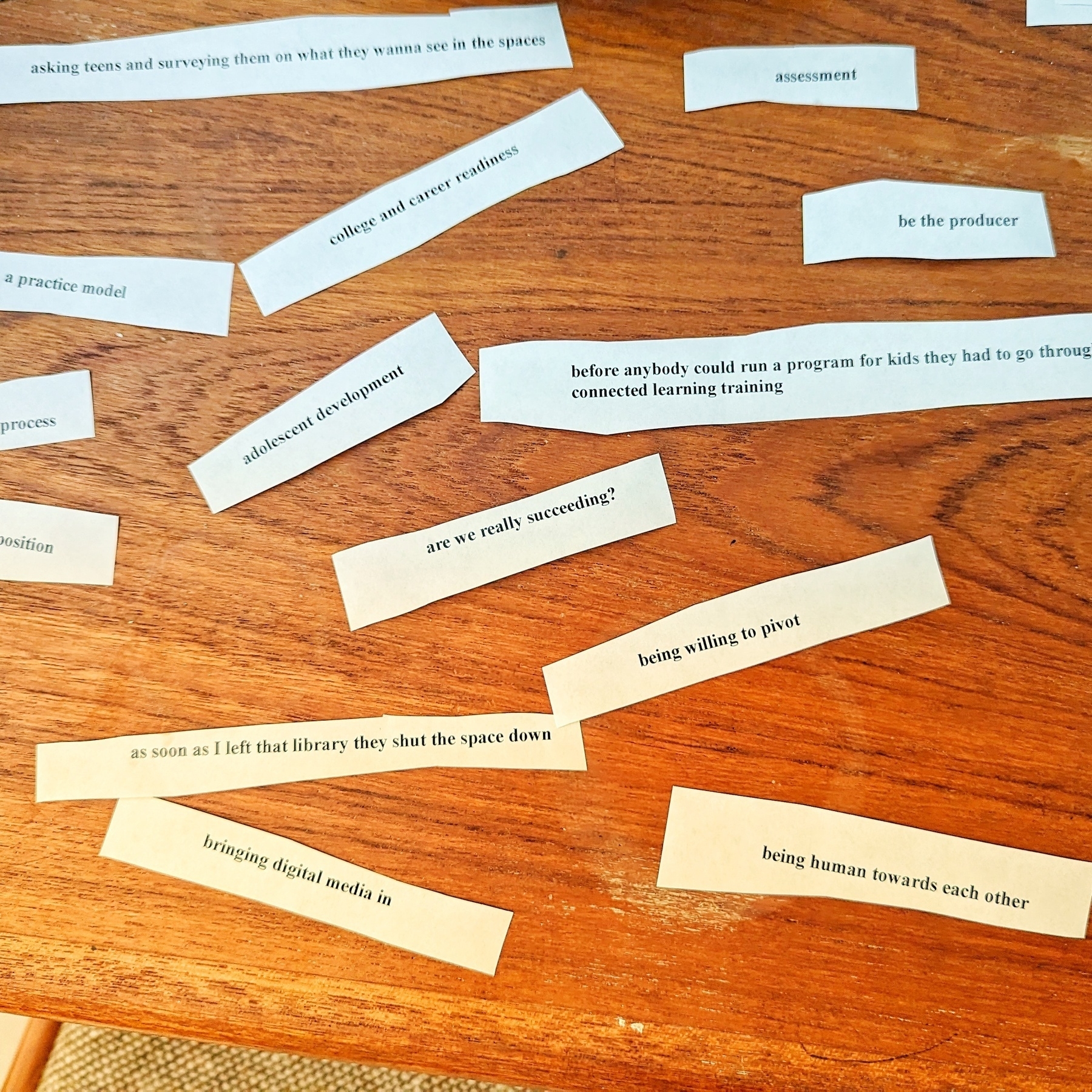I love that they were able to let Worf’s skin be the same color as Michael Dorn’s.
Welcome to the analog part of qualitative data analysis. Whenever I get to the coding-the-codes stage, I need to channel Austin Kleon and use my hands. I sometimes handwrite the codes on index cards, but this time I printed them up and am cutting them into strips.

In the US? You might think the Kids Online Safety Act is good but before you decide, please read this piece at Ars Technica, this piece from the Electronic Frontier Foundation, and this week’s newsletter from Charlie Jane Anders. Then if you think it’s bad, contact your congresspeople.
My infant starts first grade tomorrow, nbd.
My aspiration as a parent is to one day have a plan for the day and a half of free time my kid has the first week of school.
I find myself resentful of my body’s need for sleep.
If you’re in New Zealand and you have improv experience, you should probably go do this workshop with Bianca Casusöl. She’s the best.
🔖 Read To Be a Consumer of Culture Means Living in a Hostage Situation by Aaron Bady (Slate)
A great exploration of the role of fan labor in culture work.
Looking at my On This Day page, I found this blog post about letting go of self-punishing goals. I really needed it, as I’ve spent much of this vacation staring into the ocean and making plans for how I’ll do everything better once I get home.
📚🔖 Read The Parentified Protagonist: From Shifting Roles to Shapeshifter, a guest post by Stephanie Willing (Teen Librarian Toolbox).